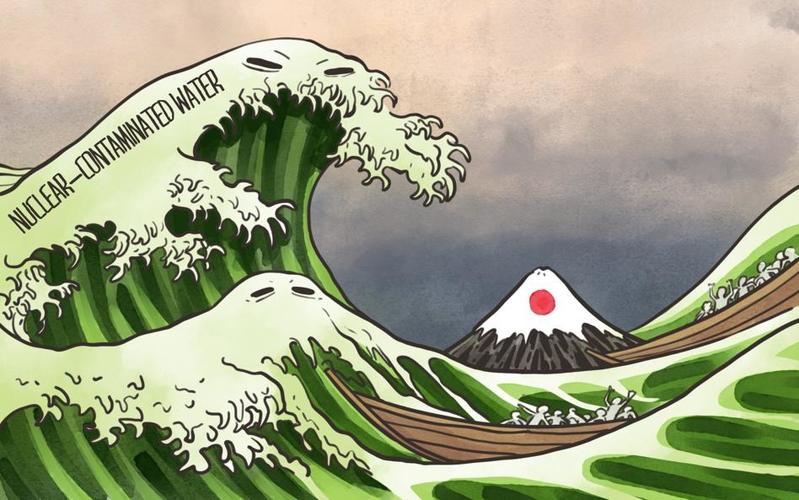 (CAI MENG / CHINA DAILY)
(CAI MENG / CHINA DAILY)
A video clip published on social media by his office on Wednesday shows Japanese Prime Minister Fumio Kishida purportedly savoring food from Fukushima with three of his ministers. "Safe and deliciously crispy," he contentedly purrs after eating a slice of raw octopus tentacle seasoned with soy sauce and mustard.
But many people will fail to be convinced by the public relations stunt. The fishing, seafood, catering and tourism industries in Japan, China, the Republic of Korea, Thailand and some Pacific island countries have already been impacted to various degrees by Japan's discharge of the nuclear-contaminated water from the tsunami-destroyed Fukushima nuclear power plant into the sea, which began last week and is expected to last for at least 30 years.
Food products from Fukushima have had poor sales in Japan and are even sold at half the price of those from other areas. And since the ocean discharge began, the overall price of seafood in the country has fallen remarkably. The ban enforced by many other countries and regions on imports of Japanese aquatic products will undoubtedly deal a heavy blow to the industry of the country in the foreseeable future. The Chinese mainland and the Hong Kong Special Administrative Region together account for about 42 percent of Japan's exports of aquatic products.
In a meeting with the chair of the National Federation of Fisheries Cooperative Associations in Tokyo on Aug 21, while pledging generous funding to Japanese fishing communities for as long as it takes for the discharge to be completed, Kishida claimed: "We promise to take full responsibility for implementing necessary steps so that fishermen can pursue their livelihood with peace of mind for the next several decades."
That being said, if the seafood from Fukushima is really "safe and delicious" as Kishida claims, why is his government trying to muffle the Japanese fishers' opposition to the water-discharge project with a pledge of decades of subsidies. And if not, the Kishida government is duty bound to explain to the world in what way it will "take full responsibility", and what "necessary steps" it will take to ensure the victims of its move "can pursue their livelihood with peace of mind for the next several decades".
No matter how safe and delicious the Japanese leader finds Fukushima food to be, he cannot shun the question: If the Japanese fishers' losses are to be covered by government compensation in the following decades, when and how will it start compensating their foreign counterparts that are being and will be affected by its selfish move? It should not be forgotten that the environmental effects of the move will be accumulative over such a long time. The influences might be more psychological in the beginning and more substantial in the future.
By paying more attention to PR stunts to cover up the truth, rather than doing scientific research in a transparent and responsible way to find the optimal solution to dispose of the water, the Kishida government has been putting the cart before the horse from the very beginning. It should be aware that the supposedly cheapest solution may turn out to be the most expensive in the long run.


